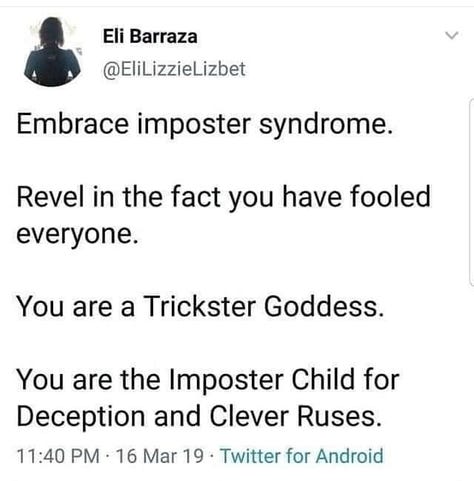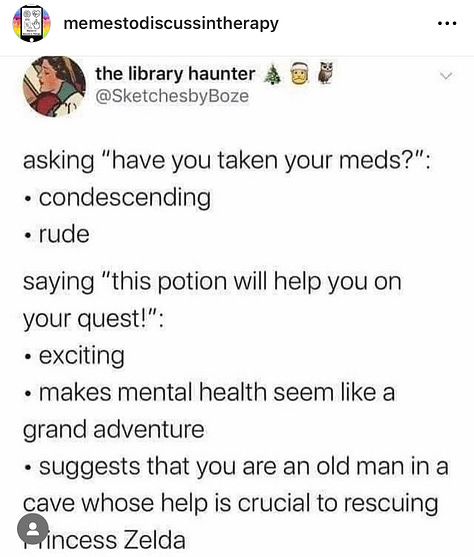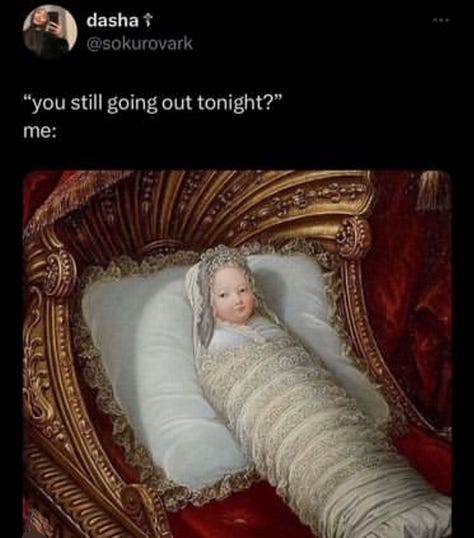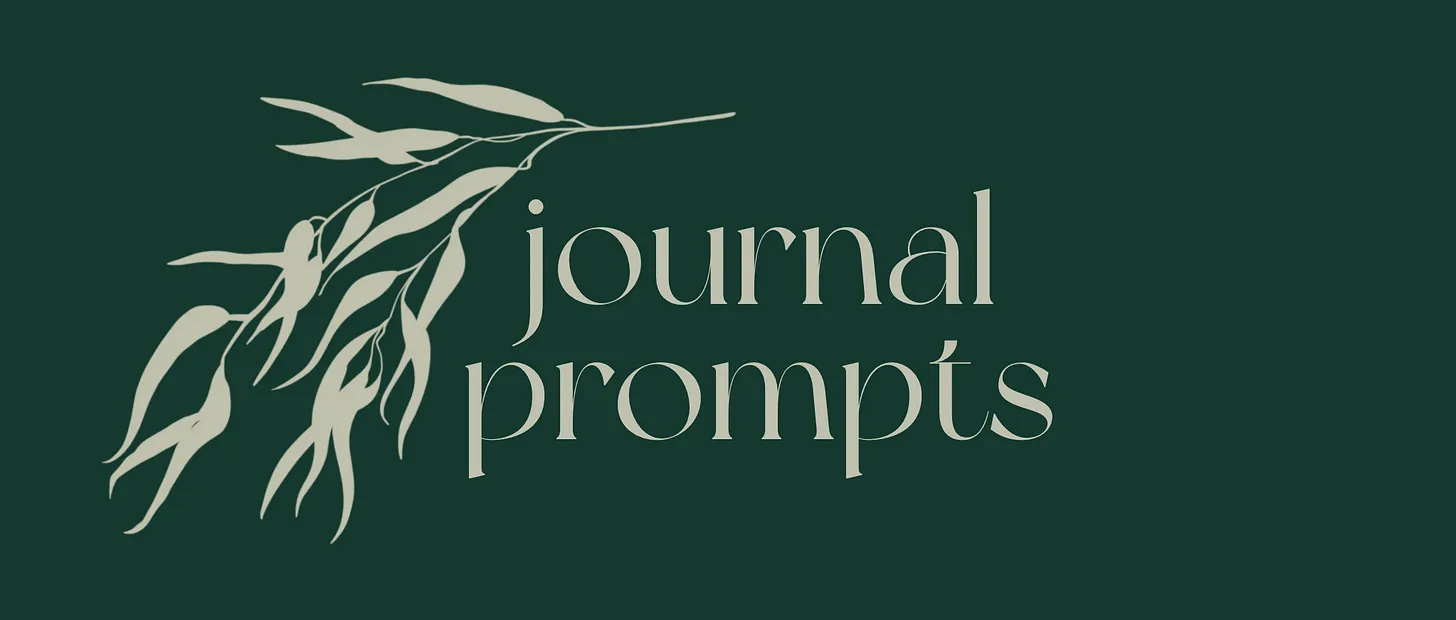Before we begin, a note: we’re talking about bodies today. Many of us have complicated relationships with our bodies and I wanted to provide a content warning in case something in here may stir stuff up for you. I invite you to pay attention to what your body has to say while you read. Gently notice what it communicates to you, and take breaks if you need.
When I was a teenager, I religiously watched The Biggest Loser12 . I adored Jillian Michaels and her tough approach. I loved the way she screamed at contestants to work harder, to push their bodies further. They demolished their limits and beat their bodies into submission, and I loved it.
And I hated myself for never being able to do the same.
I failed all of the time. I wanted to be the best Irish dancer I could be, yet I could not bring myself to practice as much as I thought I should. I felt ashamed of how a blister could keep me from hitting the dance floor, and I felt an unhealthy pride when my dance socks were bloodied. I felt loathing towards myself for being tired and limited, and my ego inflated when I perceived myself to be eating “healthier” or working “harder” than someone else.
My body was not a part of me I felt connected to. It was something to control and master.
And I never could win the fight.
It wasn’t until I grew older that I learned there was never a fight to win.
Hillary McBride says you don’t have a body, you are a body3. Our bodies are not possessions, but are actually us. This is a radical approach to our humanity, one that has been ignored by western culture. We’ve adopted a segmented approach to our humanity, chopping it up into neat categories of “mind” and “body”, and sometimes even “soul”. The mind is the prized possession, the echelon of human existence. The body is a mere necessity to house us as we live on this earth (and don’t pay too much attention to its fleshly desires). And the soul, meanwhile, is tucked away in a dark corner inside, inaccessible. John O’Donohue, however, posits your soul isn’t housed in your body4. Rather, your body is in your soul, as your soul is the part of yourself that is boundless, ethereal, eternal.
Which, again, is another radical approach to our humanity. It almost feels subversive, to consider our souls as larger than ourselves, our spirits as something that actually hold our bodies as we move about our days.
It is very far from the way most of us have been taught about our bodies. We see magazines and advertisements preaching weight loss. We commend people for their thinness. We watched our parents do a low-fat diet, then the Atkins diet, then the South Beach diet, then keto, then paleo, then gluten-free and wondered if maybe we shouldn’t eat the whole pack of dunk-a-roos at lunch. For those of us who grew up in Christian contexts the body is often considered to be the place of sin and brokenness. We are to mitigate its desires with good and holy living, and we are not to lose control of it.
The implicit and explicit messaging we receive is something along the lines of this: your body is bad, and you can control it and make it better if you would just work hard enough.
And the result of this message is rarely increased connection and well-being. It’s shame.
My mom has often told a story I don’t remember. In it, I am four years old and cuddling with her. I am pressing her stomach, finding comfort in the fleshiness of it. I burrow my head into it and say, “mummy, when I grow up I want a squishy tummy like you.” I had not yet learned that certain bodies are considered good while others are considered bad. All I knew was that my mom’s stomach, which had stretched with four children, was beautiful to me.
I feel a healthy sadness for the four year old version of myself, for I know this changed. For a long time, when my mom told this story I felt ashamed and embarrassed that I offended her. It is only after years of therapy and learning (and unlearning) that I see the beauty of my child self, finding comfort in the body culture said my mother should diet away.
I treat my body differently now, seeing her less as something to conquer and more as a partner in this life I lead. She tells me when I am happy and when I am sad. She warns me when I should be afraid, and also when I shouldn’t, because her warning centres can be a little over-sensitive, sometimes. She holds memories I have no narrative for. At times this is painful, and sometimes I am tired of it, but I honour the way she continues to tell me the truth of my story.
Because that’s what our bodies are: truth-tellers. They are faithful to tell us the truth about our experience. We can ignore it. We can stifle it. We can white-knuckle our way through. But they will always be faithful to tell us how we truly feel.
I could take this conversation in different directions, for our bodies carry us in so many different contexts. We could talk about ableism, fatphobia5, race. We could talk about acne and emotions and emotions about acne. We could talk about our nervous systems. We could talk about culture, and who decides what is “good” and what is not.
But perhaps I will leave us with this, today: Your body is good. It was created good by a powerful and creative and loving God, and it is good no matter its size or shape or colour or ability or pain. It is an act of resistance to love the body you are in, to get to know it, to thank it for the way it has taken you through every day.
Your body is good.
Beautiful, even.
I hope you can catch even a glimpse of it.
A BLESSING:
May you find goodness in the flesh that contains you, the spine that holds you, and the shoulders that tell you you’re carrying too much
May you find fullness of being in the curve of your smile, the ache of your feet, and the sweat of your palms
May you dare to inhabit fully the dwelling of your being
And find Love
Sweet, kind, radical Love
At home in you
JOURNAL PROMPTS:
How would you describe your relationship with your body? Consider the messaging, both implicit and explicit, you received about bodies through your upbringing.
List the ways your body supports you through each day. If this feels difficult, start by considering the functions that keep you alive.
PRACTICES:
Take a moment to check in with your body, right now. What is it telling you? Notice, with compassion, any sensations, emotions, aches and pains that are present. If it feels good, place your hand on your heart and notice what it is like to listen to your body.
Taking a page from Hillary McBride’s book (literally), try shifting the language you use to address your body. Rather than saying “my body”, use a pronoun instead and explore how your perception of your body changes as you do.
Choose an activity and pay attention to your body as you engage in it, thanking your body for what it communicates to you. It could be walking, spending time with a friend, praying, or drinking a coffee. For example, I enjoy weightlifting, and lately I’ve been working on thanking my body as I complete my reps. I thank her when she does it well, and I thank her when she tells me she’s done with the weight.
Now for some fun stuff!
Here are things that have made me smile this month, because we can’t talk about serious stuff all the time:
The reels round-up: I laughed far too hard at this stupid video, we just don’t deserve dogs, and this dad’s absolute commitment to the bit
Watching: the new Zelda came out so I am not watching ANYTHING6, but I am playing video games so much it’s all I can see in my head when I fall asleep.
Reading: The Storied Life of A.J. Fikry by Gabrielle Zevin, Killers of a Certain Age by Deanna Raybourn, Unsettling Truths: The Ongoing, Dehumanizing Legacy of the Doctrine of Discovery by Mark Charles and Soong-Chan Rah
Meme dump:






As always, thanks for reading this edition of The Middle! Feel free to leave a comment in the Substack App or Web Browser, or subscribe to receive next month’s email right to your inbox.
This show is drippppping with fatphobia and weight bias.
The Wisdom of Your Body, 2021
Anam Cara, 1996
This is a lie, I have watched two episodes of Jury Duty and can’t stop talking about it.






Hey Alex!
Thank you so much for this! I relate so much to your words about the shame of not practicing enough, or working hard enough when in Irish dance. Not to mention having an old Irish dance teacher, in my past, who would make me believe I'm not good enough because of my body.
I also appreciate the suggestion of using a pronoun instead of saying "my body". The language itself removes the shame away from me, and helps me recognize that my feelings about my body don't have to define who I am. I am not my problems, my problems are my problems. When I use pronouns, it feels like I'm anthropormorphizing my body issues into a separate being. It helps create space between me and my shame. It feels easier to show compassion to something else, rather than myself, but the cool thing is, is that I'm inadvertently showing compassion to myself when I do that.
I hope you're enjoying Tears of the Kingdom! I, too, have not watched anything else because of it.
I'm glad I signed up for this! Thanks again. Hope you're doing well =)
Luc